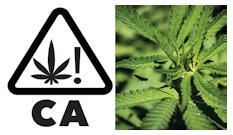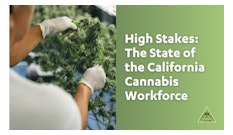
At a city council meeting May 12, Arvin, Calif., officials voted 5-0 to pass a new hemp ordinance. The ordinance for the Kern County city will go into effect 30 days after the recent vote, allowing the city to begin permitting for hemp businesses, said Pawan Gill, the city’s director of administrative services.
Once the ordinance is effective, the city can regulate odor, “public nuisance abatement requirements” and other aspects of hemp growth and processing, Gill told Hemp Grower in an email.
“We have been in discussions with various parties throughout the development of this ordinance that are interested in farming and manufacturing hemp products within the City,” Gill said in the email. “Notable companies that have expressed strong interest in coming to Arvin include Apothio and SLOCO [H]oldings.”
The ordinance provides clarification on which hemp activities will be permitted within the city, while encouraging collaborations between public- and private-sector entities that are involved in hemp, she said. Cultivators and manufacturers must receive a permit from the city or enter into a development agreement with the city to commence operations there.
Developments in Arvin follow the Kern County Sheriff’s Office, California Department of Fish and Wildlife and multiple individuals’ alleged destruction of 500 acres of hemp that Apothio grew near Arvin. The company estimated the crop was worth about $1 billion, according to a complaint it filed in the U.S. District Court for the Eastern District of California.
Gill previously told HG that the alleged destruction of Apothio’s crop was a “catalyzing moment” for city officials to decide to draft an ordinance.
She also pointed to a Kern County ordinance that regulates hemp—passed by the county’s board of supervisors in February—as a contrasting approach. While the two ordinances have some similarities, the largest difference, Gill said, is that the county ordinance “limits hemp cultivation for researchers to 1 acre per permit holder.”
Kern County’s fraught relationship with the cannabis industry is also exemplified in part by its 2019 closure of medical dispensaries in unincorporated parts of the county.
Arvin City Manager Jerry Breckinridge weighed in on the city’s ordinance in a prepared statement. While other cities tend to pass ordinances, as he put it, “in a vacuum,” Arvin city officials requested and receive input from the hemp industry on the ordinance. As it turns out, he said, he discovered multiple advantages of hemp.
“After the research we conducted, I am pleased to see that hemp is not just about CBD oil, there are so many beneficial uses for the product from industrial to environmental,” Breckinridge said in the statement. “I am just glad that Arvin will be instrumental in providing an environment where the hemp industry can flourish, research, and educate."

























